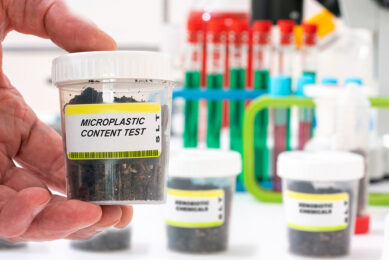Corn yield stability varies with rotations, fertility
Research now shows that the type of cropping system and fertility affect corn yield stability, according to the American Society of Agronomy.
Understanding temporal variability in crop yields has implications for sustainable crop production, particularly since greater fluxes in crop yields are projected with global climate change.
Many long-term cropping system studies have compared average crop yields; this study looked at stability of yields and whether cropping systems and manure applications affected crop yields differently in poor- and high- yielding years.
K.K. Grover et al. investigated the effects of long-term cropping systems on corn grain yields, yield trends, and yield stability over the past 16 years of a long-term fertility and cropping systems experiment at the Pennsylvania State University.
This study suggests that on average in a productive Central Pennsylvania soil, the yield of corn rotated with alfalfa, red clover, and timothy is modestly higher and less variable than corn grown exclusively. Further, when dairy manure is applied to meet crop nitrogen requirements, continuous corn can perform equally well to the rotated in high-yielding years, but performs poorly in low-yielding years such as dry summers and wet springs.
When synthetic fertilizers or phosphorus-based manure are applied, however, continuous corn may yield less than rotated corn in low- and high-yielding years. Further research is needed to evaluate the economic returns of these cropping systems.
Source: American Society of Agronomy











